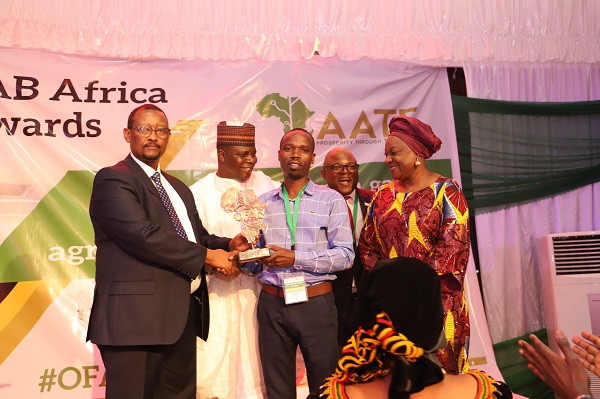
The executive director of the African Agricultural Technology Foundation (AATF), Dr. Canisius Kanangire has hailed journalists as being crucial to helping the public understand and accept agricultural biotechnologies needed for food security, sustainable development and poverty eradication.
Speaking during the 8th Open Forum on Agricultural Biotechnology (OFAB) Africa Media Award in Abuja, he underscored the need for journalists to expand their scope of knowledge on agricultural science to enhance their reportage on the genetically modified organism, GMO crops to the global community, farmers and policymakers.
The AATF boss posited that agricultural biotechnology presents a veritable to address food insecurity plaguing the continent. He, however, noted that agricultural biotechnology has suffered from unwarranted criticisms from groups against genetic modification.
He, therefore, tasked science journalists to correct misinformation about modern biotechnology, noting that journalists should contribute to the creation of enabling environment for agricultural biotechnology.
Kanangire pointed out that the OFAB Media Awards was put together to promote excellence in science journalism and appreciate journalists’ contributions to the development of agricultural biotechnology.
In his remarks, the director-general, National Biotechnology Development Agency (NABDA), Prof. Abdullahi Mustapha commended OFAB for championing the education of policymakers. teachers, farmers and students on the benefits of biotechnology.
He acknowledged that OFAB Nigerian has recorded tremendous milestones in creating awareness and championing the education of policymakers, professional bodies, CSOs, teachers, farmers, students, extension workers and the public on the benefits of biotechnology.
Mustapha harped on the Federal Government’s commitment to ensure food security, saying this informed the establishment of NABDA to accelerate the deployment of science and technology as one of the anchors of the nation’s quest to accelerate its development.
NABDA, he said, was established in 2001 and saddled with the mandate to carry out well-focused research and development in biotechnology in food and agriculture, health, industry, environment and other strategic sectors for national development.
In his keynote address, the vice-chancellor of the Federal University, Kashere, Gombe State, Prof. Umaru Pate urged science journalists to fight misinformation, and disinformation about agricultural biotechnology through well-researched, factual and evidence-based reports.
Pate also charged journalists to embark on investigative journalism to expose scandals in the agricultural sector, as well as help farmers to have accurate information that would enhance their productivity.
He noted that African contributions to agricultural development in the world have been low, despite the huge arable land on the continent.
Earlier, the OFAB project manager, Mr. Vitumbiko Chinoko who spoke on the achievements of the media award, pointed out that the organisation which is in 10 African countries has trained 16,000 journalists, 744 editors and reached 34 per cent of women journalists.
He admitted that the relationship between OFAB and the media echoes volumes, and indicate “how seriously we take the work of the media. He acknowledged that, over the years, investment and synergy have truly paid off.
“It is being a lot of value to have you (the media) as our strategic partner and we know how much you are valued out there. This partnership has helped us to be able to reach but, more importantly, demystify and breakdown the information in bits and pieces that will be understood by the people at the grassroots.
“Going forward, we will continue to work with the media. We have done this media award in this fashion that you have seen in the past 7 years and one of the things that we hope to do is to review it so that, probably, we can add more value to it and not abandon it.
“I think that, as OFAB, we are doing well. As much as gaps will be there for improvement, we hope that our work with the media and the different governments who are hosting us in different countries’ OFAB will continue to make a difference in making agricultural biotechnology a normal thing,” he added.


